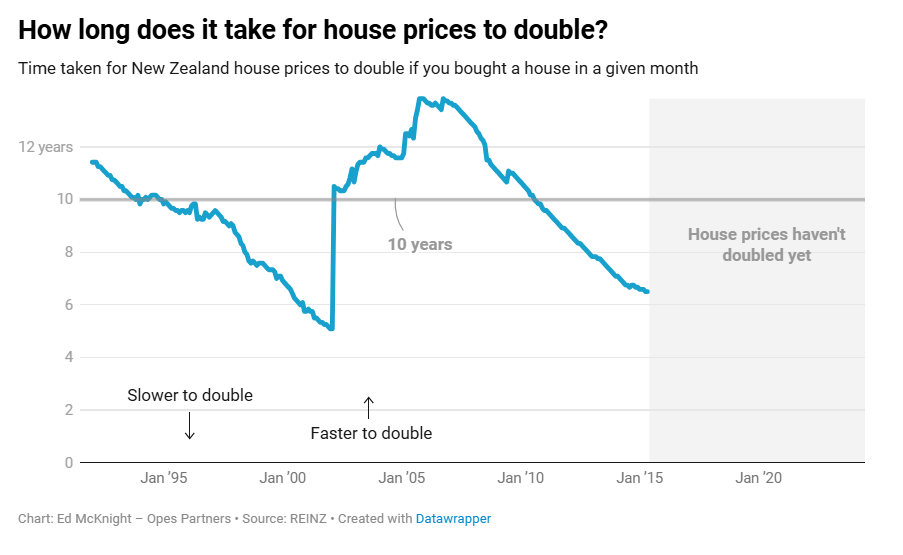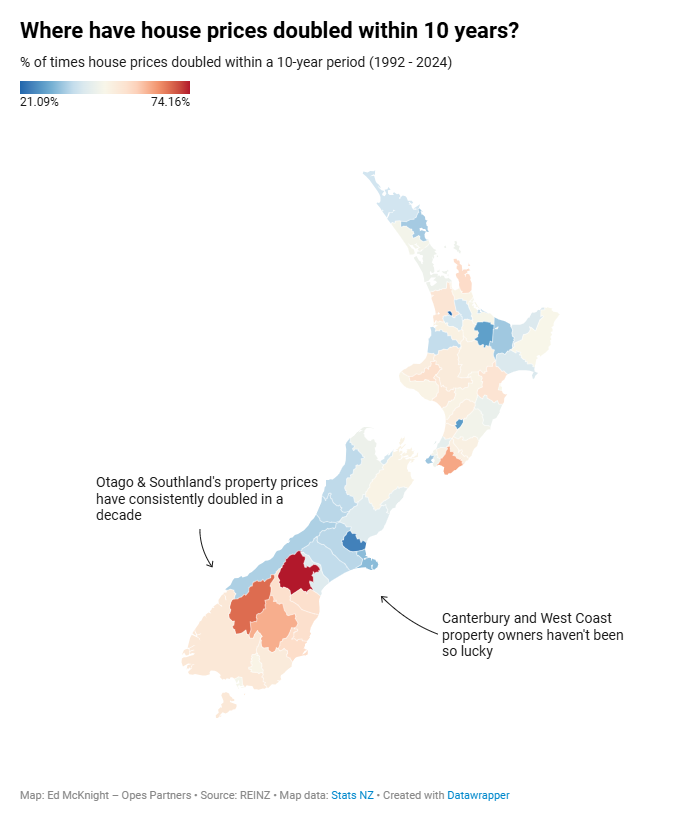Opes Partners' Ed McKnight on New Zealand's housing market myth

It’s a common belief in New Zealand, often discussed at social gatherings, that house prices double every 10 years.
However, Ed McKnight (pictured above), an economist at Opes Partners, provided a detailed analysis of the past 22 years of house price data for OneRoof, revealing the reality behind this popular claim.
Decoding the doubling myth
In spite of popular belief, McKnight’s analysis revealed that house prices have only doubled every decade 45% of the time. This indicates that while property values do increase, they don’t always meet the legendary doubling standard within a 10-year timeframe.
The rates of increase vary significantly; sometimes properties double in value in under a decade, and sometimes they take much longer.
Historical price fluctuations
The fastest recorded doubling of house prices occurred between 2002 and 2007, a mere five years and one month. Conversely, the slowest period of doubling took nearly 14 years, spanning from 2005 to 2013, which included the challenging times of the Global Financial Crisis (GFC), McKnight said.
Post-COVID market adjustments
The post-COVID property boom saw an explosive 42% increase in values in under two years, a rate that proved unsustainable as prices subsequently fell by 17.8%.
Specific areas like Lower Hutt experienced even steeper declines, with property values dropping just over 30%.
Timing matters
McKnight pointed out the curious impact of timing on property value increases.
For example, those who purchased homes in February 2002 saw their investments double by 2007. However, purchases made just a month later in March 2002 did not double in value until 10.5 years later.

Regional variations
The success of property investments also varies significantly by region.
In the Otago and Southland areas, properties doubled in value 74% of the time within any given decade. By contrast, in Hamilton, this occurred only 21% of the time.

Future outlook and government policies
Looking ahead, house prices may not continue to rise as rapidly. With high current price-to-income ratios and new debt-to-income restrictions from the Reserve Bank, the pace of growth could slow. Furthermore, potential government policies to increase housing supply might also temper price increases.
Long-term data perspective
McKnight said it’s important to note that reliable house price data from the Real Estate Institute of New Zealand only dates back to 1992, covering a period that has generally seen positive growth. While the average annual increase has been 6.7%, future growth rates might be more modest, possibly closer to 5%.
See the full analysis on OneRoof.



